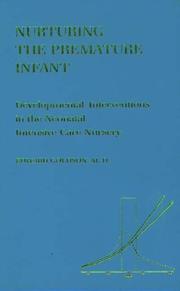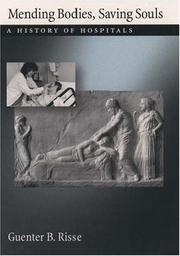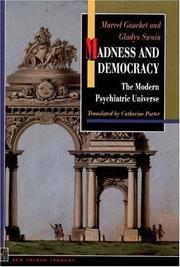| Listing 1 - 10 of 15 | << page >> |
Sort by
|
Book
Year: 1999 Publisher: Cambridge, Mass. National Bureau of Economic Research
Abstract | Keywords | Export | Availability | Bookmark
 Loading...
Loading...Choose an application
- Reference Manager
- EndNote
- RefWorks (Direct export to RefWorks)
This study investigated whether the type of hospital in which a Medicare beneficiary is admitted for hip fracture, stroke, coronary heart disease, or congestive heart failure matters in terms of amount and timing of Medicare payments and survival. In total, government hospitals were the least expensive for Medicare, with major teaching hospitals being most expensive within 6 months of admission after the index even. Survival was best in major teaching hospitals. When considering payments subsequent to those for the initial hospitalization, Medicare spent more for patients admitted to for-profit hospitals than for those admitted to other non-teaching facilities survival. Payments on behalf of patients treated in for-profit hospitals were higher for Medicare Part B and home health, especially during the first two months following discharge from the initial hospital. Results of our research suggest that Medicare has a definite financial interest in where Medicare beneficiaries are admitted for their hospital care.
Hospital care --- Older people --- Evaluation. --- Hospital care.
Book
ISBN: 2710309025 9782710309024 Year: 1999 Publisher: Paris : Table ronde,
Abstract | Keywords | Export | Availability | Bookmark
 Loading...
Loading...Choose an application
- Reference Manager
- EndNote
- RefWorks (Direct export to RefWorks)
"L'hosto, quand on y a séjourné longtemps et qu'on a failli y clamser, on y reste toujours un peu." Une plongée au coeur des hôpitaux. Un récit drôlatique.
Book
Year: 1999 Publisher: Cambridge, Mass. National Bureau of Economic Research
Abstract | Keywords | Export | Availability | Bookmark
 Loading...
Loading...Choose an application
- Reference Manager
- EndNote
- RefWorks (Direct export to RefWorks)
Applying principles of merger evaluation to the health care industry in general, and to hospital markets in particular, poses several unique challenges. Definition of relevant geographic markets and assessment of the consequences of changes in competition for patient and social welfare are complicated by asymmetric information and moral hazard due to health insurance. We suggest a new empirical approach to assessing the impact of hospital competition which addresses the shortcomings of existing methods. We then summarize our main results on the welfare consequences of competition. We conclude with an illustration of how our methods can be used to assess the welfare implications of specific hospital mergers, and with some implications of our findings for antitrust policy.

ISBN: 0718500946 Year: 1999 Publisher: New York : Leicester University Press,
Abstract | Keywords | Export | Availability | Bookmark
 Loading...
Loading...Choose an application
- Reference Manager
- EndNote
- RefWorks (Direct export to RefWorks)
Psychiatric hospital care --- Psychiatric hospitals --- Hôpitaux psychiatriques --- History --- Soins --- Histoire

ISBN: 1280760397 9786610760398 0199748772 0197707947 9780199748778 0195085701 9780195085709 9781280760396 661076039X Year: 1999 Publisher: New York : Oxford University Press,
Abstract | Keywords | Export | Availability | Bookmark
 Loading...
Loading...Choose an application
- Reference Manager
- EndNote
- RefWorks (Direct export to RefWorks)
As more premature infants survive the immediate neonatal period and require prolonged periods of hospitalisation, researchers in fetal development and infancy have begun to reassess the strategies for their care.
Neonatal intensive care. --- Premature infants --- Sensory stimulation in newborn infants. --- Hospital care. --- Infants (Premature)
Book
Year: 1999 Publisher: Washington: U.S. G.P.O.,
Abstract | Keywords | Export | Availability | Bookmark
 Loading...
Loading...Choose an application
- Reference Manager
- EndNote
- RefWorks (Direct export to RefWorks)
Medicare --- Older people --- Hospitals --- Finance. --- Hospital care --- Rehabilitation services --- Prospective payment --- United States. --- Medical --- Social science
Book
ISBN: 2701312787 Year: 1999 Publisher: Paris : Berger-Levrault,
Abstract | Keywords | Export | Availability | Bookmark
 Loading...
Loading...Choose an application
- Reference Manager
- EndNote
- RefWorks (Direct export to RefWorks)
Hospital care --- Hospitals --- Medical care --- Soins hospitaliers --- Hôpitaux --- Soins médicaux --- Evaluation --- Administration --- Quality control --- Qualité --- Contrôle
Book
ISBN: 2842540182 Year: 1999 Publisher: Paris : EDK,
Abstract | Keywords | Export | Availability | Bookmark
 Loading...
Loading...Choose an application
- Reference Manager
- EndNote
- RefWorks (Direct export to RefWorks)
Nosocomial infections --- Resuscitation --- Hospital care --- Infections nosocomiales --- Réanimation --- Soins hospitaliers --- Prevention --- Quality --- Control --- Prévention --- Qualité --- Contrôle

ISBN: 9780195055238 0195055233 Year: 1999 Publisher: New York : Oxford University Press,
Abstract | Keywords | Export | Availability | Bookmark
 Loading...
Loading...Choose an application
- Reference Manager
- EndNote
- RefWorks (Direct export to RefWorks)
Verzorgingsinrichtingen --- Geschiedenis der geneeskunde --- Etablissements de soins --- Histoire de la médecine --- Hospitals --- History of Medicine. --- Hospital care --- Hôpitaux --- Soins hospitaliers --- history. --- History. --- Histoire

ISBN: 1283539888 9786613852335 1400822874 1400811708 9781400811700 9781400822874 0691033722 9780691033723 140080261X 1400802628 9781400802616 9781283539883 Year: 1999 Publisher: Princeton, N.J. : Princeton University Press,
Abstract | Keywords | Export | Availability | Bookmark
 Loading...
Loading...Choose an application
- Reference Manager
- EndNote
- RefWorks (Direct export to RefWorks)
How the insane asylum became a laboratory of democracy is revealed in this provocative look at the treatment of the mentally ill in nineteenth-century France. Political thinkers reasoned that if government was to rest in the hands of individuals, then measures should be taken to understand the deepest reaches of the self, including the state of madness. Marcel Gauchet and Gladys Swain maintain that the asylum originally embodied the revolutionary hope of curing all the insane by saving the glimmer of sanity left in them. Their analysis of why this utopian vision failed ultimately constitutes both a powerful argument for liberalism and a direct challenge to Michel Foucault's indictment of liberal institutions.The creation of an artificial environment was meant to encourage the mentally ill to live as social beings, in conditions that resembled as much as possible those prevailing in real life. The asylum was therefore the first instance of a modern utopian community in which a scientifically designed environment was supposed to achieve complete control over the minds of a whole category of human beings. Gauchet and Swain argue that the social domination of the inner self, far from being the hidden truth of emancipation, represented the failure of its overly optimistic beginnings.Madness and Democracy combines rich details of nineteenth-century asylum life with reflections on the crucial role of subjectivity and difference within modernism. Its final achievement is to show that the lessons learned from the failure of the asylum led to the rise of psychoanalysis, an endeavor focused on individual care and on the cooperation between psychiatrist and patient. By linking the rise of liberalism to a chapter in the history of psychiatry, Gauchet and Swain offer a fascinating reassessment of political modernity.
Psychotherapy --- Power (Psychology) --- Hospitals, Psychiatric. --- Mental Disorders --- Mental illness --- Power (Social sciences) --- Psychiatric hospital care. --- Emotions --- Psychology --- Senses and sensation --- Psychagogy --- Therapy (Psychotherapy) --- Clinical sociology --- Mental health counseling --- Empowerment (Social sciences) --- Political power --- Exchange theory (Sociology) --- Political science --- Social sciences --- Sociology --- Consensus (Social sciences) --- Mentally ill --- Psychiatric hospital treatment --- Hospital care --- Mental health services --- methods. --- therapy. --- Social aspects. --- Treatment --- Control (Psychology) --- Treatment. --- Methodology.
| Listing 1 - 10 of 15 | << page >> |
Sort by
|

 Search
Search Feedback
Feedback About UniCat
About UniCat  Help
Help News
News